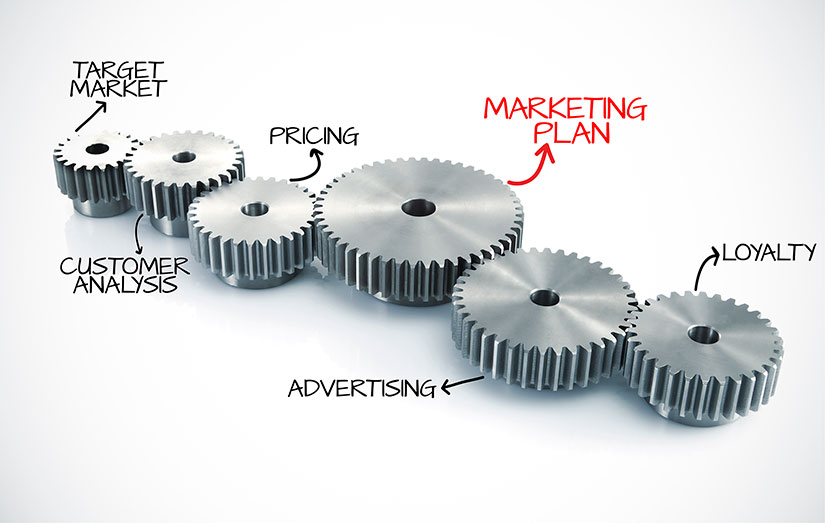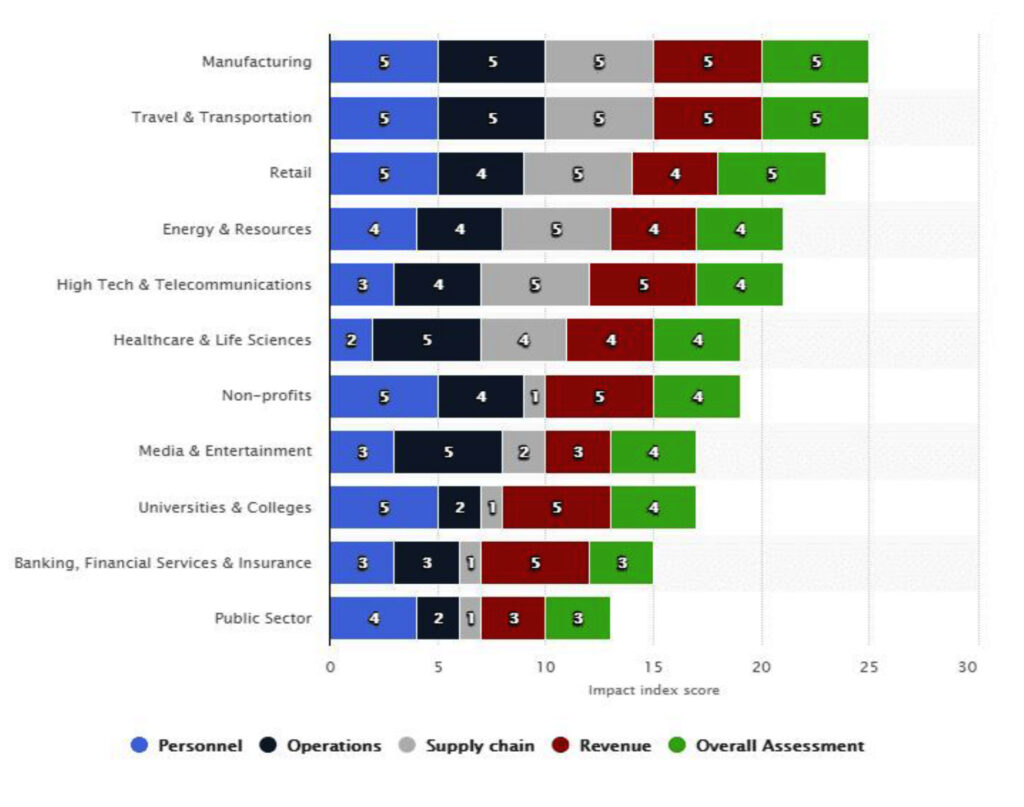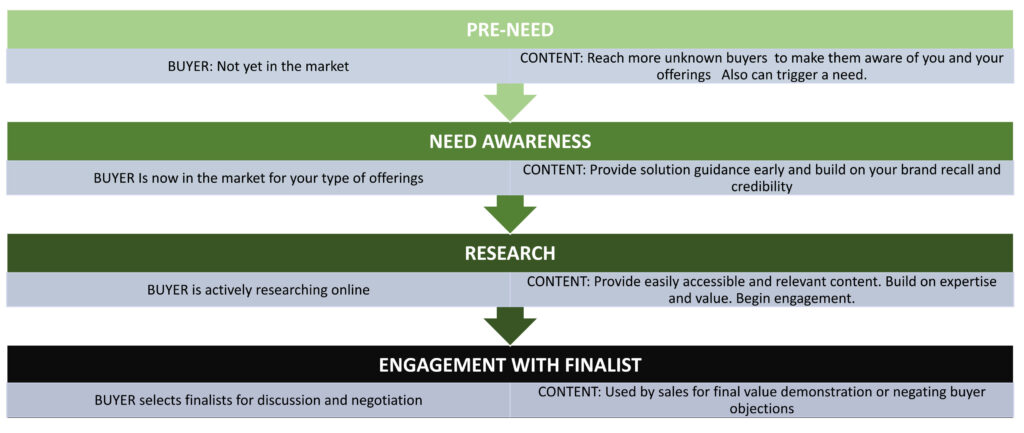Why Industrial Marketing is Different
Why Industrial Marketing is Different
Most consumer B2B and B2C products or services approach their marketing a bit differently from one another, but overall there are many similarities. Then you have Industrial Marketing, which is quite different from others.
That’s because the industrial B2B sales process is very different from almost every form of consumer B2B or B2C sales. So it makes sense that their marketing would be different.
B2C–Consumer Sales involve emotional, impulsive, and quick reactions to the purchasing of products or services. Where B2B–Industrial Sales usually are without emotion, the sales are deliberate, detailed, and customized, and often involve a more lengthy process. Also noting, Consumer Marketing uses a wide variety of traditional and digital tools and strategies. And Industrial Marketing uses far less tools and strategies; therefore, lags behind Consumer Marketing—particularly online.
A recent study by Statista, a global business-data platform, shows COVID impacts manufacturing harder than most other segments, such as retail, finance, energy, etc. Many Reasons are not related to marketing, yet most marketing approaches are certainly contributing to the problem.
COMMON INDUSTRIAL B2B MARKETING APPROACHES
There are typically 4 approaches to B2B Marketing.
1. Direct Engagement (sales, phone)
2. Print Collateral (delivered, mailed)
3. Print Advertising (trade publications)
4. Trade Shows
COVID_19 has changed the rules of engagement for these approaches. Since the pandemic began, on-site visits by sales reps are discouraged or even prohibited, and all trade shows have been cancelled indefinitely. Nearly two-thirds of all marketing tactics have been decimated. Eventually, COVID 19 will be controlled. There is light at the end of the tunnel. Personal on-site visits will resume and trade shows will reopen. Yet, your marketing efforts online must improve and modernize—quickly.
Here’s why:
Industrial B2B buyers have been migrating online more than many manufacturers realize—even before COVID-19. New buyers, engineers and decision makers are Millennials who grew up with the internet. They’re completely comfortable with it. Where older decision makers have also been moving online. Somewhat forced. They have become more dependent on it.
TIMES HAVE CHANGED
In an article titled: Industrial Content Marketing Strategies, we learn: “Today’s purchasing managers don’t want sales reps to come in and pitch a product. Before they engage with you, they’re spending time surfing online for solutions and direction. They’re typing in keywords to find articles, videos, studies, what we in marketing call “content,” to solve a need or problem. When they are just getting started, they’re at the “high-level” or “top of the sales funnel” and usually not willing to speak with you.”
“Once they’ve gained enough knowledge online to determine what they want, they move on to consider from what provider they want to purchase from. Only then do they fill out a contact form or call to grant your sales rep an audience. The network and buddy system is giving way to the impersonal sales cycle. This is what has given rise to content marketing for industrial companies.”
A recent survey by TREW Marketing and IEEE GlobalSpec, (a conglomerate of engineers and technical professionals from across the globe), illustrates these trends in the industry. Nearly three-quarters of respondents are conducting more than half of the buying process online before choosing to speak with someone at a company. Younger engineers (45 and younger) spend even more time online before choosing to speak to someone.
Moreover, in a recent 2020 Thomas Industrial Survey, there has been a 12% increase in website usage by manufacturers and industrial companies to connect with more buyers and customers since the outbreak of COVID-19. Due to the in-person limitations of COVID-19, there has been a rapid acceleration of digital marketing in the industry.
Adjusting your manufacturing marketing strategy today will likely help you win you more business down the road.
Learn More: The Ultimate Guide To Marketing For Manufacturing Companies
CONTENT IS KING
Engineers are hungry for information. The large majority are looking for in-depth, technical information and specifications. Datasheets, case studies, product demo videos, and white papers top the list as the most valuable content. Two-thirds of engineers subscribe to at least three newsletters, with 18 percent subscribing to six or more. More than 50-percent of engineers are willing to provide information in exchange for valued content.
VIDEO CONTENT IS GROWING
Recent studies show that fifty-eight-percent of millennial engineers rated YouTube among their top sources when seeking information for a purchase decision. Product demonstrations, education and tutorials, factory tours, and testimonials are leading the way for industrial videos. This shows that videos are a tool every company should use.
HOW IMPORTANT ARE SUPPLIER/VENDOR WEBSITES?
Amongst marketing directors and purchasing agents, 56% rated supplier/vendor websites as very valuable when seeking information on the latest engineering technologies, industry trends, and products. For comparison, with industry directory websites and trade publications online only 33% rated these remotely valuable.
WHAT IS LESS IMPORTANT
Search Engine Optimization (SEO), while critical for consumer sales, is less important to industrial B2B. The survey reports that nearly 90% of consumers will only engage with the top 3-5 companies that appear on the first SERP (Search Engine Results Page) before making a purchase decision. However, 73% of engineer respondents said they’re willing to view three or four more pages of search results before selecting one or starting a search over; up from 54% the previous year. 28% percent are willing to view five or more pages of search results, up from 19% in 2018. It should also be noted, social media is not considered an authoritative source for engineering content. More than half of respondents do not view social media as a valuable resource for seeking information on the latest technologies, trends, and products, which may illustrate that they do not view these channels as reliable.
Despite the evidence, old-school reps still push back: exclaiming: We’re manufacturing! We’re not selling products direct to the public. We don’t need online marketing. We’re different! This is simply not true. Industrial sales and consumer sales processes are different: But the buying stages are essentially the same. Use the following graphic to help understand the importance of suitable content.
INDUSTRIAL MARKETING IS MOVING ONLINE
All stages of a company’s marketing plan are now online and growing for consumers and engineers. In these modern times, you will see all manner of marketing advice when you search online. You’ll see compelling stories about every type of marketing initiative: Automated Marketing, Behavioral Marketing, Social Marketing (with LinkedIn, Facebook, and Twitter), Account Based Marketing, etc. All of these can work for Industrial B2B. But most will fail if you do not build and maintain a good marketing foundation.
Marketing for manufacturing cannot focus strictly on trade shows, industry magazines and networking to gain the business they’re trying to reach. New organizational buyers are seeking solutions online, and manufacturing companies cannot afford to avoid focused, effective online participation.
WHAT SHOULD BE IMMEDIATE MARKETING PRIORITIES?
It’s highly important for manufacturers to start improving on three-digital marketing foundations: a quality website, pertinent, resourceful online content and a series of videos that depict the manufacturer’s products and/or services. These three areas are discussed below.
1) MAINTAIN A HEALTHY WEBSITE
ALL websites are constantly under siege from Google changing online rules, algorithms, functionality and security. Behind what you see, your website may have issues which reduce your online presence or cause visitors to leave your site. Regularly test your website to identify issues so you can quickly repair them. It’s a good idea to schedule a recurring time to do this. If your website is over 5-years-old, you probably need to rebuild it. Platforms older than 5-years-old are not equipped to deal with current security protections and functionality as today. Rebuilds also give you the opportunities to modernize your appearance as well as your layout to engage visitors better.
2) DEVELOP WRITTEN AND VIDEO CONTENT
It is imperative that manufacturers participate in the content or script writing; it’s a technical thing. Yet you should get outside help from a respectable marketing agency to help with the process.
3) GET PROFESSIONAL MARKETING ASSISTANCE
Modern Marketing now requires a team of professionals to assist in your marketing goals. As mentioned, the digital landscape is constantly changing. New marketing rules and tools are being introduced every month. One person in your firm cannot possess the acute degree of marketing experience, knowledge and time now required to effectively guide a company through the changing digital landscape by themselves. Although, one internal person should serve as your marketing director or coordinator. This person should oversee and direct your marketing strategy; however, they will need other marketing specialists to help you compete and produce results.
Manufacturers have 2 options when if comes to addressing their marketing plan.
OPTION ONE: they can hire individual marketing specialists. This is when they seek out and engage individual specialists such as a web designer, graphic artist, content writer, social media strategist, etc. There are two significant flaws with this: Each is only concerned with and accountable for their particular specialty. They don’t work with an overall marketing strategy, and will not be too concerned how their individual efforts merge with other marketing efforts. You may find yourself with a mish-mash of expensive marketing play-toys which do not improve your situation. And, individual vendors come and go. Often, they take a job elsewhere, or simply disappear. Then you’re back to looking for a replacement, that when found, will tell you their predecessor did everything wrong and you must start over.
OPTION TWO: manufacturers can hire a professional Marketing Agency. Working with a firm that has specialists allows you to expect accountability and results from the firm. And they are responsible for vetting, engaging and directing marketing specialists. In addition, you’ll want a firm who will make the commitment to dedicate their resources to focus, learn and understand your industrial products and customers to a much greater extent.
JOIN THE MOMENTUM TO MONDERNIZE INDUSTRIAL MARKETING
Every customer you have will leave you. They close, retire, or replace you with a more valuable competitor. And today, they will leave you faster than ever. Loyalty has given way to value. And value is being presented and promoted to your existing and prospective customers online at a rate which your existing sales staff cannot do on foot or phone. Manufacturing B2B should be adapting more modern online marketing strategies to aid in new business development.
It works. Manufacturers we have observed who have become aggressive at adding online marketing such as powerful optimized websites, who produce useful online content (including video), and who use digital tools to grow contact databases for e-Mail campaigns, are quietly grinning as their sales volumes increase more rapidly than they ever have.




This Post Has 0 Comments